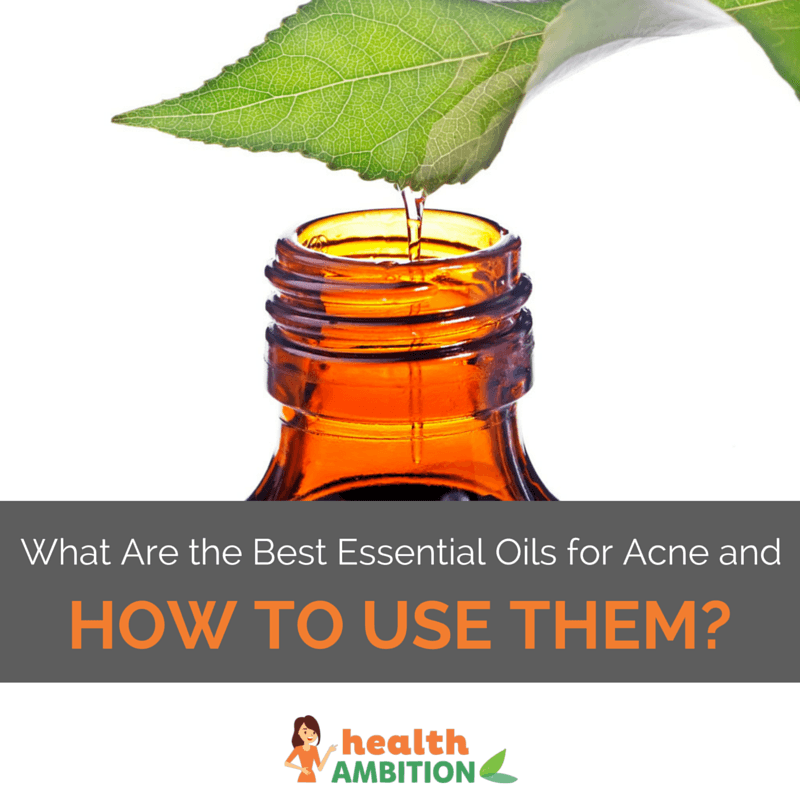
Acne can feel like it’s impossible to shift. The majority of us experienced acne during our teenage years. An unlucky 50% will bring it into our 20s and 30s. In our 40s, the statistic dwindles down to 4%. (source)
My daughter is in her early teens. I can see her confidence taking a hit as her skin starts to breaks out. I don’t have the heart to tell her that she’ll probably have to deal with this long term – my acne only cleared up when I hit 30.
Instead, we’re focussing on finding natural solutions – essential oils in particular. Doing our own research and coming up with DIY treatments has been a bonding experience, and science backs it up too. Read on to find out what are the best essential oils for acne and how to use them.
What is Acne?
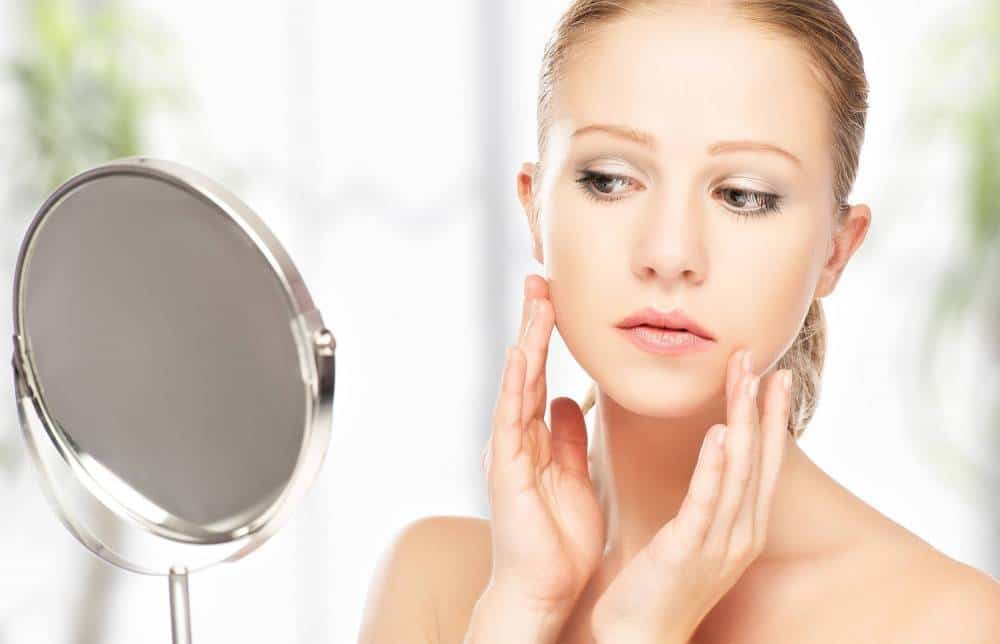
Acne is characterised by excess oil or sebum on the skin, non-inflamed blackheads and whiteheads, inflamed pustules, cysts and scarring.
Acne occurs most commonly on the face, neck, upper chest, shoulders and back as these regions have the highest number of oil glands.
Depending on the type of symptoms, acne can be classed as mild, moderate or severe. (source)
Acne Basics
Your skin is covered in tiny holes called pores. These pores are usually associated with a sebaceous gland and a hair follicle.
The sebaceous gland releases an oily liquid called sebum. Sebum keeps your skin supple and protects it from bacteria.
Your sebaceous glands usually work quite well, however sometimes things go wrong. If too much oil is produced, it can be difficult to remove dead skin cells.
These dead skin cells and hardened sebum get stuck in your pores. Sometimes bacteria get stuck there too. Bacteria can feed on the dead skin cells and reproduce.
If the pore remains open to the surface, the contents become oxidised by the air and turn black, creating an “open comedone” or blackheadIf the pore opening is very tiny, oxidation doesn’t occur and the pore contents remain white in colour – making a whitehead or “closed comedones”.
In more severe cases, a bacteria present on the skin’s surface called P. acnes causes inflammation and infection in the pores, resulting in inflamed bumps and cysts.
What Causes Acne?
We know what’s going on with acne on a microscopic scale, but what causes overproduction of oil? There are numerous factors which contribute.
How oily our skin is depends mainly on our hormones. One hormone in particular called dihydrotestosterone (DHT) is responsible.
If our levels of DHT are raised, it triggers our sebaceous glands to produce sebum. DHT is raised during puberty, pregnancy and various stages of the menstrual cycle. (source)
Genetics also play a part. Oily skin can run in a family. It’s estimated that up to 80% of acne cases are due to genetics. (source)
There is limited evidence for a link between stress, diet and acne. It’s widely believed that high sugar and milk consumption can exacerbate acne, along with periods of anxiety. (source)
What Are Essential Oils?
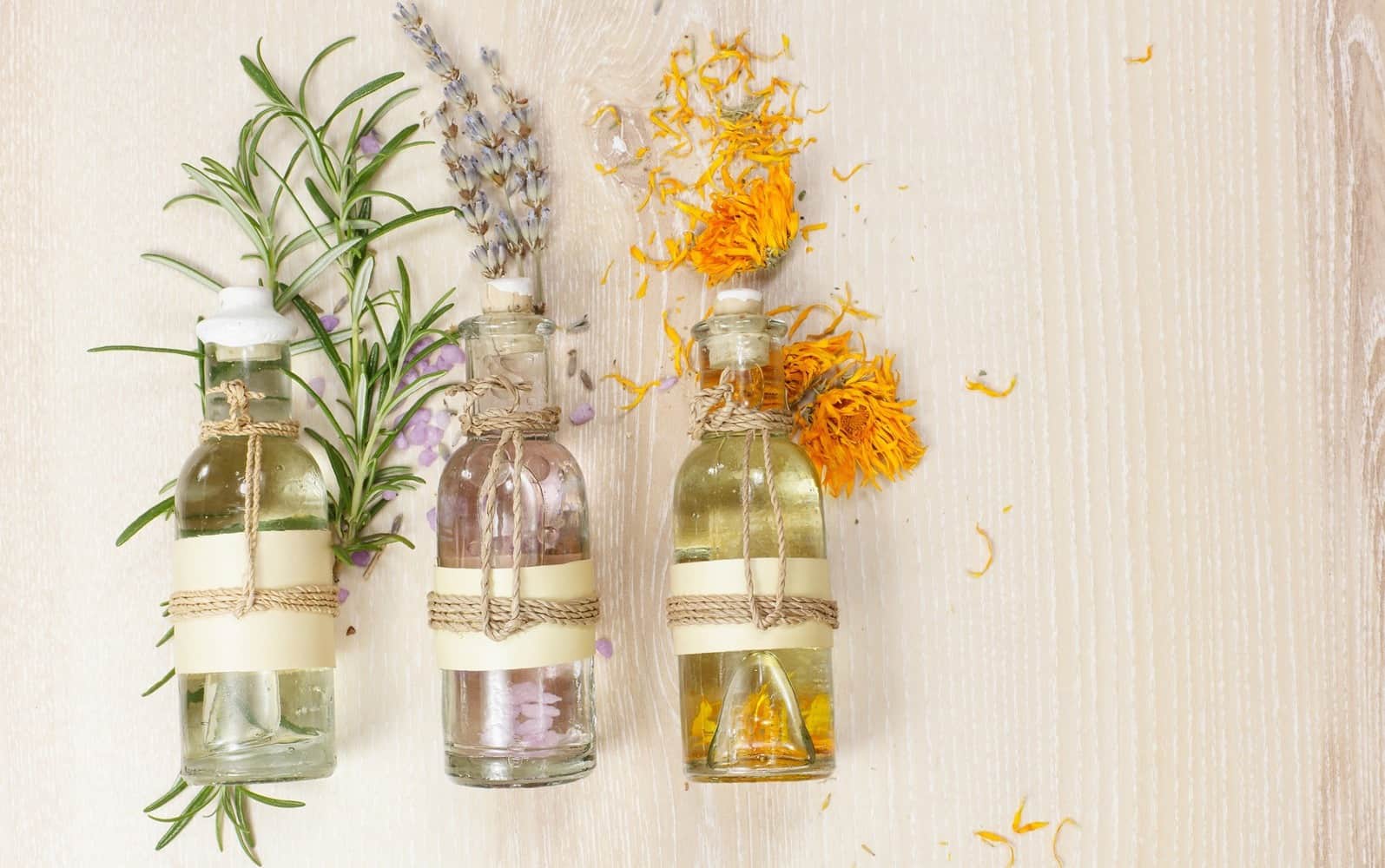
Essential oils are concentrated aromatic liquids made from the roots, seeds, flowers, fruits and leaves of plants. (source)
They are easily vapourised to release a strong, pleasant odour.They are called “essential” oils as they contain the plant’s “essence”, i.e. chemical compounds present in the plant that may have health benefits. (source)
How Can Essential Oils Help With Acne?
Many essential oils have medicinal properties that can be useful in treating acne.
Essential oils such as tea tree oil and eucalyptus oil act as natural antibiotics which can kill the bacteria involved in acne.
Other essential oils fight inflammation. Inflammation in acne is mostly caused by the bacteria P. acnes. Inflammation causes redness, pain and swelling in the affected acne bumps.
Finally, there are essential oils which are classed as “astringents”. Astringents have the ability to remove oil from the skin, easing acne symptoms.
The Best Essential Oils For Acne
1. Tea Tree Oil
Tea tree oil tops most lists when it comes to the best essential oils for treating acne. There is a wealth of research to support it.
Tea tree oil has a broad-spectrum antibacterial effect. It can even kill bacteria that have become resistant to conventional antibiotics such as MRSA.
It’s believed that chemicals called monoterpenes in tea tree oil have the ability to damage the bacteria’s protective “skin”.
Three compounds in tea tree oil – terpinen-4-o1, α-terpineol and α-pinene were tested against bacterial strains including P. acnes. All were found to have antibacterial properties. (source)
Tea tea tree oil can also ease skin inflammation. It’s believed to do this by inhibiting the inflammatory chemical histamine. (source)
One clinical trial tested tea tree oil against a conventional acne lotion called benzoyl peroxide. Both reduced the number of inflamed and noninflamed lesions, with tea tree oil having fewer side effects. (source)
One point of caution for using tea tree oil is that it can cause allergic contact dermatitis. Always do a patch test before applying it to a large area of skin and dilute with a carrier.
You can buy tea tree essential oil on Amazon here.
2. Thyme Essential Oil
Thyme essential oil has considerable antibacterial, antioxidant and anti-inflammatory effects that make it useful in treating acne.
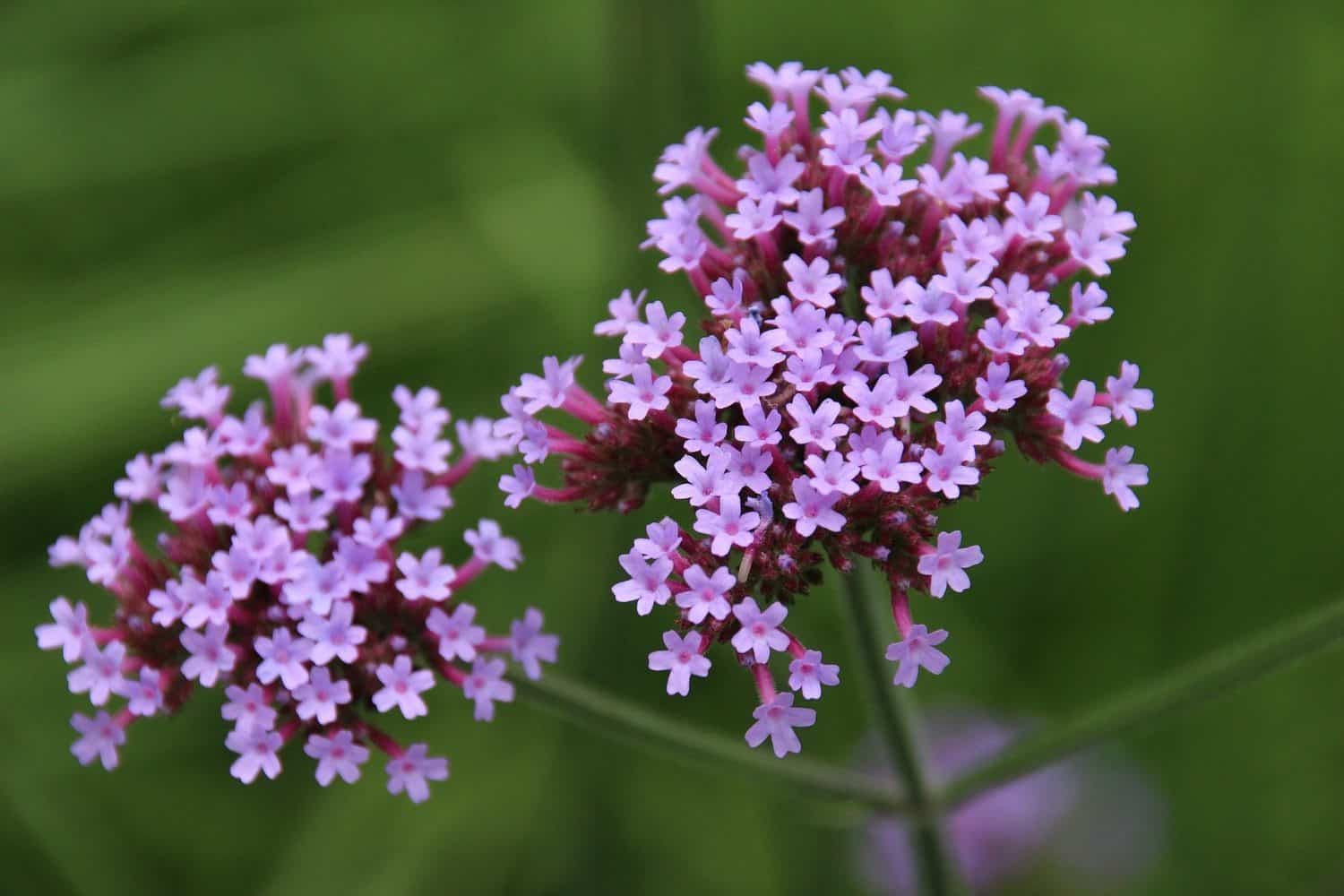
It has activity against bacteria which have become resistant to conventional antibiotics. These properties are believed to be due to several compounds including cymene, limonene and terpinene.
The exact mechanism by which it exerts its anti-inflammatory powers has not been determined but it has been suggested that thyme can block signals involved in triggering inflammation. (source)
You can buy thyme essential oil on Amazon here.
3. Rosemary Oil
Rosemary essential oil contains a compound called rosmarinic acid which is believed to impart most of its medicinal properties.
A study tested rosmarinic acid against P. acnes and another strain of bacteria involved in acne called S. aureus. It was found to inhibit both. (source)
One study investigated the way in which rosemary essential oil killed P. acnes. It was found that rosemary “attached to the surface of bacterial cell and the bacterial bodies were severely damaged. (source)
The antioxidant effects of rosemary extract have been proven to prevent skin damage by UV radiation. (source) Oxidative stress is also associated with skin infections so rosemary’s antioxidant powers may help fight P. acnes infection in this way too.
You can buy rosemary essential oil on Amazon here.
4. Basil Oil
Eugenol is the ingredient in basil oil that is believed to be responsible for its antimicrobial, anti-inflammatory, and antioxidant properties. (source)
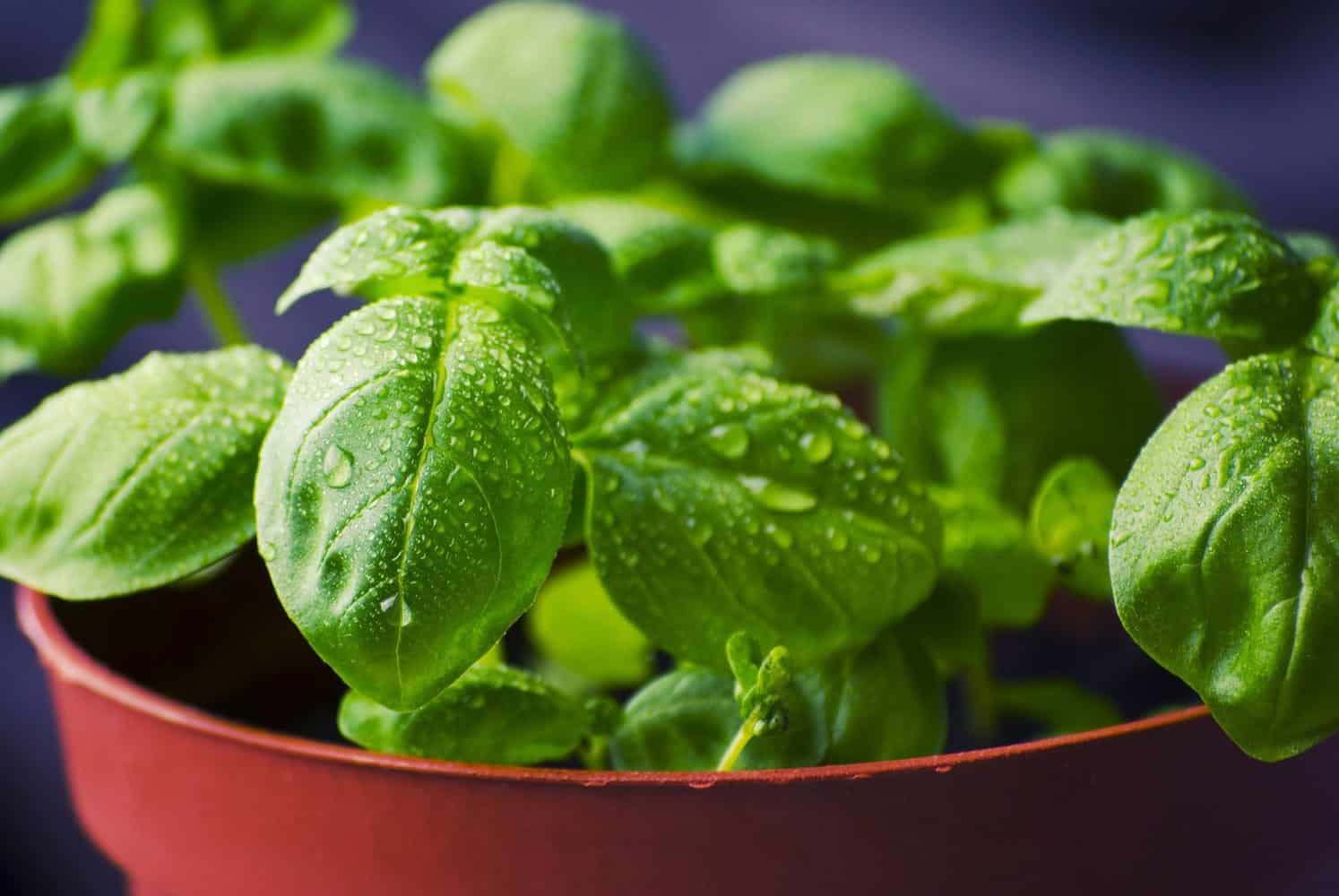
Basil essential oil was shown to reduce acne lesions faster than conventional treatment with benzoyl peroxide lotion, making it a great alternative. (source)
If you want extra potency, try mixing some basil oil with aloe vera gel. One study showed that this combination was more effective than the antibiotic clindamycin in the treatment of acne. (source)
You can buy basil essential oil on Amazon here.
5. Eucalyptus Oil
Eucalyptus essential oil is a strong opponent against acne. It’s been shown to inhibit the growth of many strains of bacteria including P. acnes and S. aureus. (source)
Some of this activity is believed to be linked to the compounds γ-terpinene and α-pinene. (source)
Research has also shown that eucalyptus oil can decrease the amount of sebum production by reducing the size of sebaceous glands. This plays a big part in controlling acne. (source)
You can buy eucalyptus essential oil on Amazon here.
6. Rose Oil
Rose essential oil may smell sweet but it packs a powerful punch against the bacteria involved in acne.

One study found that rose extract was one of the top three plant extracts against P. acnes. (source)
Rose oil also reduces levels of inflammatory chemicals in skin cells that have been exposed to P. acnes. (source)
You can buy rose essential oil on Amazon here.
7. Lavender Oil
Lavender oil is one of the most popular essential oil around, both for its pleasant smell and relaxing effects. (source)
The sedative and anxiolytic effect of lavender oil may help in dealing with acne breakouts due to stress. (source)
If that’s not enough for you, you can add lavender oil to the list of essential oils that can fight P. acnes infection too. (source)
You can buy lavender essential oil on Amazon here.
8. Chamomile Oil

Chamomile oil contains chemicals that may reduce inflammation and pain. It’s theorised that it slows the signals in your body that create a swelling response. (source)
Roman and German chamomile oils both have anti-inflammatory powers shown to be superior to over-the-counter painkillers and steroid creams. (source)
Chamomile oil also has antibacterial powers against P. acnes. (source)
You can buy chamomile essential oil on Amazon here.
9. Magnolia Essential Oil
Magnolia essential oil can kill P. acnes rapidly – one study showed that it took effect within 10 minutes. Two compounds called honokiol and magnolol are believed to be the source of this activity. (source)
Magnolia essential oils also reduce the levels of chemicals involved in inflammation during P. acnes infection. (source)
You can buy magnolia essential oil on Amazon here.
10. Witch Hazel Oil
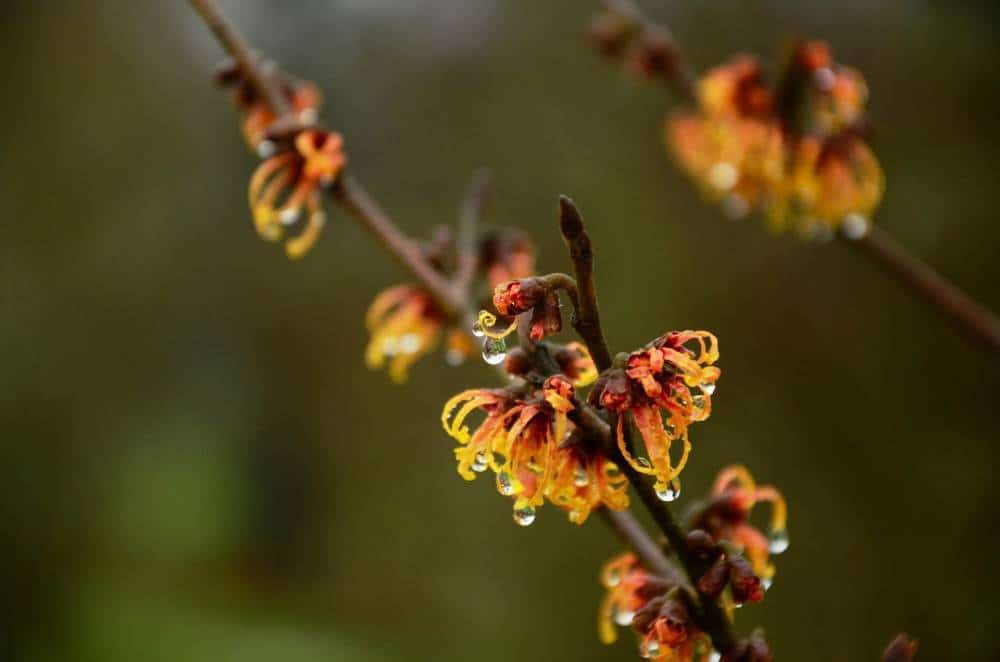
Witch hazel is commonly used as an astringent to dry out oily skin. This is due to a high level of compounds called tannins. Tannins give plants a bitter taste, such as in black tea or red wine. (source)
Witch hazel is also a natural anti inflammatory and can protect skin cells from damage in acne. (source)
You can buy witch hazel oil on Amazon here.
How to Use Essential Oils For Acne
There are a few different ways to use essential oils for acne, depending on how much time you have and the affected area. Here are some ideas.
If you’re already using a fragrance-free moisturiser suitable for acne, add a few drops of essential oil to it. 1 drop of essential oil to 1 tablespoon of moisturizer is a safe mix.
If you’re in need of something a bit more intense, mix 2-3 drops of essential oil with 2 tablespoons of natural yogurt to make a face mask. Apply this to your face in a thick layer and leave on for 10-15 minutes.
If you suffer from acne on your back or other inaccessible body part, an essential oil bath is the way to go. Just add a few drops to a warm bath and soak for 30 minutes.
Essential Oils vs Conventional Treatment for Acne
One of the big benefits to using essential oils for acne is the tiny price tag. Treating acne can be an expensive process.
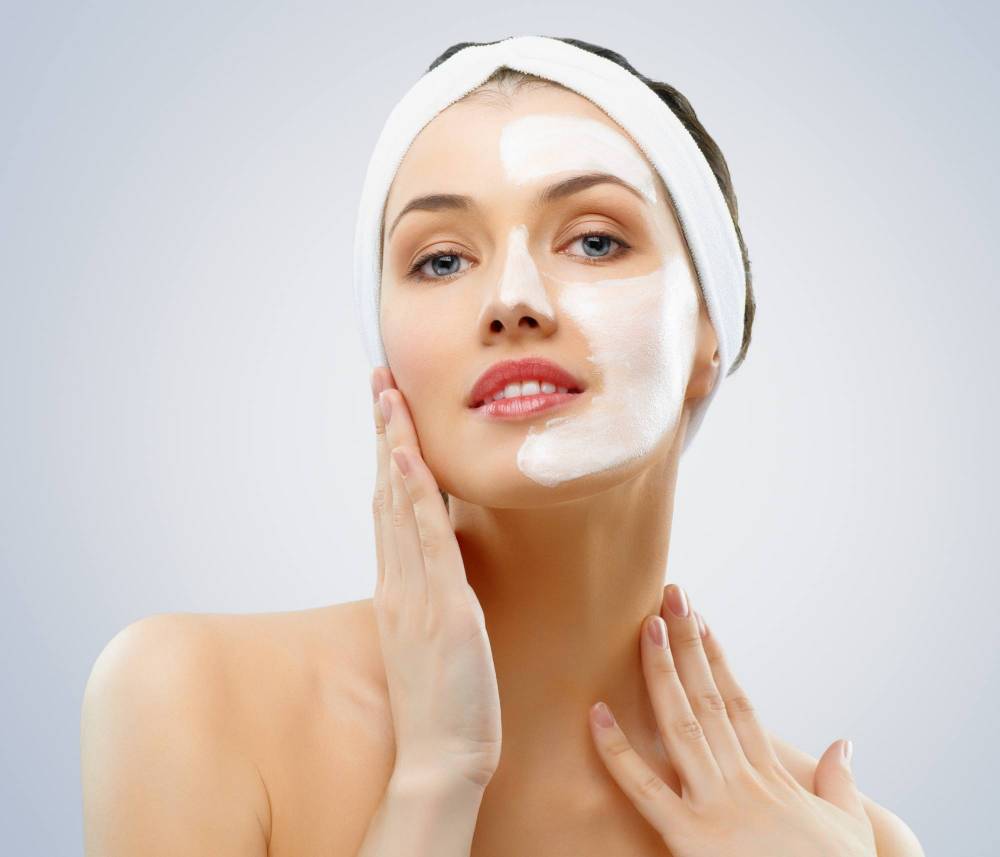
In the US, there are around two million visits to physicians each year for acne and the direct cost of treatment exceeds $1 billion per year! Non-prescription treatments alone reach $100 million per year.
With essential oils, a little goes a long way so a $4 could last months. This is good news when you consider that most people will need continuous treatment over many years to control their acne.
Not only do some essential oils give equal or better results than conventional antibiotics, the also avoid the problem of bacterial resistance. Long term use of antibiotic drugs means that the bacteria can adapt and they drugs will stop working. This doesn’t apply to essential oils.
Essential oils are almost free of side effects when used correctly. Conventional drugs for acne often come with hefty warnings, for example popular drug isotretinoin is a powerful teratogen which has strict precautions for use among women of childbearing age. (source)
Cautions
Although the above treatments are natural, they can cause skin irritation in sensitive people. Always do a patch test before applying something to your whole face.
If your doctor has prescribed a regular medicine for acne, don’t stop taking it or change your dose without discussing it with him/her first.
Essential oils can often be used along with conventional treatments for extra potency but always double check with a healthcare professional before doing this.
Conclusion
I’m pretty impressed with the science backing up the use of essential oils for acne. With all these antibacterial and anti-inflammatory powers, it’s hard to believe that some people just burn them for a lovely smell!
Leave a comment